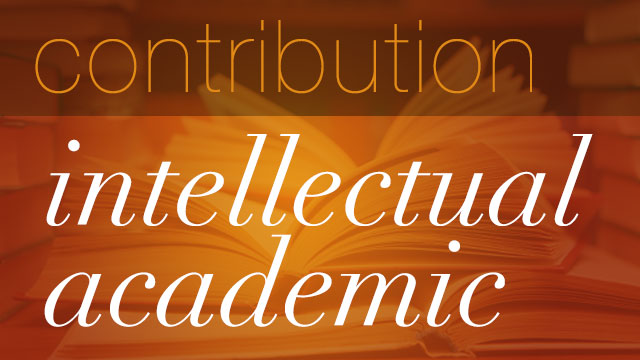All opinions are that of the author and not necessarily those of the website that it is published under.
One’s Experiential Reflections
The Quest for Meaning: Developing a Philosophy of Pluralism (by Tariq Ramadan)
The quest for meaning is an individual yet simultaneous experiential journey, from the centre of one’s individuality, travelling and leading simultaneously to the furthest parameters of shared human learning experiences. The journey begins with one’s most intimate conversations within one’s ‘being’ in relation to one’s personal conceived experiences, journeying through individual and shared experiences to form and inform ‘being’ and completing by transcending and consolidating shared learning experiences to arrive back to the self and its very intimate personal centre, hopefully enriched with deep reflections, meaningful purpose and a wealth of collective experiential understanding in continuous faith, hope and serve to both self, others and wider humanity.
This journey requires courage and commitment, the absolute essentials to begin introducing others to ‘one’s’ world, an intimate, private, emotional and sometimes unpredictable space. Opening one’s space is fundamental to simultaneous shared learning and mutual growth. Self-confrontation, awareness and reckoning are an imperative. This courage and commitment requires honesty, humility, authenticity, lucidity, criticality and transparency, bound and framed in depths and wide berths of human love.
The journey encourages one to wholeheartedly embrace a rationale of risk and refusal. This balance is a necessitate and fuels an energetic nature in negotiating approaches towards forming mutual trusting relations, testing and affirming fundamental and definitive individual and shared principles, building a resilience of ethical and critical transparency, learning and growing with a mutually respectful attitude and spirit whilst ensuring any recovery and reconciliation remains healthily supported by individual and simultaneous rights, responsibilities, patience, faith, love, forgiveness and a bold humble acceptance that one’s transparent humanness is an absolute to one’s fundamental togetherness.
It is on this quest that one learns to ‘practice’ their ‘being’. For any authentic meaning of self-truth to be derived with both sense and contentment, one must practice the ‘act’ of ‘self-definition’, accepting wholeheartedly that such a journey opens space and time for reflection, adjustment, reconciliation and affirmation in order to evolve from each given and to each consequent experience. It is in this ‘practice of being’ that the self begins to consolidate one’s life theories, philosophies, experiences, reflections, emotions and understanding with ‘being’ in relation to experiencing the wider world, others and humanity.
Throughout the experience of this quest, it is necessary to equip adequately with an attitude of openness, an eagerness to learn from the honesty of the experiences themselves, active and attentive listening, an ability to observe and question with humble curiosity, being respectful to the time and measure of other beings, any presenting moments and life’s offerings as well as maintaining and returning often to one’s own clarity and purpose of both the quest and journey itself. The pre-requisite to a rich and informative quest, is the fundamental of faith. No matter how one chooses to source, frame or manifest faith individually, it simultaneously begins, derives, arrives and ends to and from the ‘formed centre’ of self-definition of ‘being’. So for sense and contentment of one’s completed quest, one must begin to found, familiarise and contextualise a sense of faith both intrinsically in relation to intent, courage, self-belief, self-awareness, confidence, patience and perseverance as well as extrinsically in active definition of values, ethics, principles, rights, responsibilities and actions of serve from mutual respect and self-worth.
Here there is an absolute need to serve one’s centre in order to establish and affirm a resolute form of ‘self-being’ which in presentation, interaction, negotiation, and separation from the ‘other’ invites wholesome, purposeful and informed transcendence, most often and when ethically balanced, it also invites a mutually respectful and shared humanitarian transcendence. Individually the heart leads, as the ‘being’ follows, just as simultaneously one leads, as the other follows. One’s integral and evolving nature co-exists in the other.
Another outlook which is imperative to the quest for meaning is diversity. Singularity is affirmative in both ‘self-being’ and the ‘practice’ of being, but neither can reach sense or contentment without meaningful testing interactions that draw experience towards reflections of learning, growth and consolidation. It is these profound reflections of others that provide the most beneficial learning to our self. Therefore one must wholeheartedly and faithfully accept that the other’s ‘being’ in ‘presence’, is fundamental to the awareness, practice and action of the very ‘essence’ of my ‘self-being’. Space and voice must establish balanced reason. Share and care must find a connected bridge in heart. Plurality is necessary and an essential negotiation for meaning of existence and purpose.
From the singularity and plurality of our ‘beings’ we must also contemplate the very existence in both singularity and plurality of those simple concepts of ‘humanness’ and ‘togetherness’ as well as ‘separateness’ and ‘loneliness’. Each quest of life, whether intentionally and directly sought or otherwise, is a travel through the very existence and reflections of ‘self-being’ in relation to others and wider humanity. Therefore one must appreciate with honesty, humility, integrity and dignity the very vulnerable and unpredictable nature of our humanness in its capacities, its need for togetherness and reflection, its longing and connective yearn of experience through separateness and its very fundamental and natural contemplative silent need for loneliness found in withdrawal.
It is the very establishment of such simple concepts, which can lead to openings of fresh new views and understandings to the complexities we experience or face on a quest. Simplicity can underpin a common narrative and natural form to unravel, understand, define, inform and serve the complexities individually and simultaneously experienced. This again is a precarious and sometimes challenging realm of negotiation of shared needs, desires, aspirations and co-senses of fulfilment or contentment. Simplicity forms the very foundations of any complexities perceived and their multi-dimensional existence.
From singularity to plurality and from simplicity to complexity, from humanness to togetherness and separateness to loneliness, from an individual quest for meaning to simultaneous quests for meanings, the bridge that connects every experience, moment or view with its traveller or travellers who seek growing ‘self-definitions’ are those very natural core and incontestable human qualities and attributes that unfold and present in shared forms of love, forgiveness, solidarity, dignity, integrity, pain, hope, appreciation, mutuality, civility and surging aspirations for peaceful states that transcend beyond reason and belief.
So the quest returns one to the ‘self’, a definition consolidated and formed uniquely in the ‘being’, radiating from an intrinsic affirmed essence of centre and wholly connected to an extrinsic presence of active ‘self-being’ , wholeheartedly formed, in absolute definition by the undeniable informative interactions of life experiences shared with the ‘others’ being.
Whereas singularity is human in ‘being’, plurality is humanity in ‘being’. Faith in shared humanity must inform any quest. Ethics must serve to define each quest. Love must be the means of the quest. Forgiveness must remain the view of the quest. One must accept and embrace ‘self’ wholeheartedly, to foresee acceptance and embrace of the ‘other’. One’s existence informs the others existence. One’s quest serves the others quest. One’s meaning leads the others meaning. One’s peace reflects the others peace.
Shamimah Hafezji
All opinions are that of the author and not necessarily those of the website that it is published under.






Excellent work.helped a lot.thank u